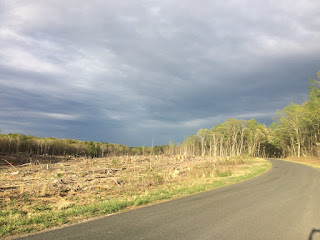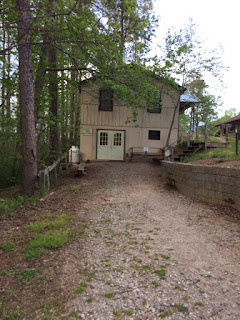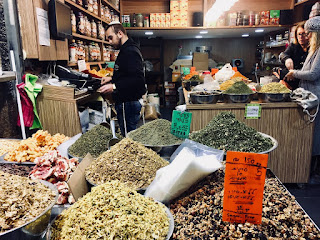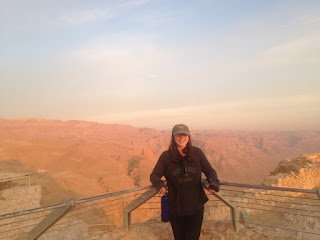The Game of Job Searching
 |
| View from the road to my interview at the Discovery School. I'd like to say its one of the roads less travelled on. |
Although I do have
27 diary entries of what each day of job searching was like, I am going to
spare you the details (you're welcome) and give the quick run down. I am going to limit my blog to ONE post on job searching because it isn't super natury, but it is a segue to nature. However, if you want more on my job searching experience I do believe I learned a lot and would love to help fellow job seekers who aren't quite sure which path to take.
Here is the game of job searching:
Objective: Find the best job for
you.
# Players: Unknown, but probably too
many.
Ages: 16+ with work experience.
Prizes: Anywhere from experience by an unpaid internship to happy and
meaningful career that pays the big bucks until retirement.
Rules*: None specified. You create them as you go and can follow some of my hot tips below.
And like with most
games, there is a fair bit of strategy, determination, and the more you play,
the better the odds get. It took me a while to find the strategy that worked
best for me. I think it was and will continue to be challenging for me because I am not quite sure what I want. Like the name of the blog suggests, I want to advance my career while also improving nature around me.
 |
| The Nature Room at Holiday Lake 4-H Center, where I spent my internship |
The problem is, there are at least one billion ways to do this. So which way is for me? Does the Internet have the answer? Can my friends and family help me find my answer? Obviously there is no "right" path for me to choose. But there are definitely more right paths. And how choosy can I be, really? How choosy will the companies and organizations be? What am I even good at? What do I like? How do I fit into this big crazy world?
I started off by thinking what are all the things I've ever fantasized about being. I could be a therapist, a researcher, a consultant, be in student affairs or religious life, or work in education administration for grade school. I could work at a non-profit as an administrator or in marketing (NOT as an organizer) or work in management at a restaurant or hotel. I could also be an entrepreneur and work for a start up or be the founder of a start up of a composting business or garden or upcycling program or maybe even pioneer veggie jerky (if you haven't tried my eggplant jerky hmu). I figured, there are lots of paths, and I would apply to all of them that I liked and see who wanted me.
Who wanted me by the numbers: Out of the 30+ jobs I applied to, and I mean really applied to, not that one-click resume bullshit, I received about 20 rejection letters, 5 interviews, 3 of which went to second-round interviews, 2 offers (neither permanent) and 1 referral.
I took both offers: one as a natural resource education intern for two months and one as a fellow for the Allegheny Mountain Institute for 18 months. I journeyed to interviews at GreenBlue in recycling research, the Discovery School for wilderness therapy, and Huntington's for tutoring. But in the end, it is in community gardening where I landed. And, it is here, where most of my journey will truly begin.
*The Rules I Used for Job Searching (obviously not universal, but worked for me):
1. Job boards like Indeed, Idealist, USA jobs, Vault, and LinkedIn are great, but often lead to the resume abyss. I found my internship through Indeed and its definitely the go to spot for most jobs, but I needed super specific key words and persistence to make Indeed work for me.
2. ZipRecruiter sucked. Job alerts are super annoying. Anything that makes job searching easy usually is not a great tool because, well, finding the perfect match between employer and employee is not easy. I wasted a lot of time looking through crappy jobs and sending resumes to places I had no business applying to just because it was easy. The one interview I got from zip recruiter ended up being for door-to-door commission-based sales for Verizon. I had applied for their Energy Consultant job.
3. Create a spreadsheet to track all the places you still need to apply to and have applied to. I saved so much time once I realized I could systematize my applications and attack them in a timely, organized manner. A sample of one of my spreadsheets is below (red means I actually received the rejection letter).
4. The best job searching I did was looking at alumni, my role models, and just random people's employment history. Did you know almost every single company's website has a Careers/Futures link? So go through where your role models worked and go down the rabbit hole of finding exact places and job descriptions that fit your needs. This is how I found GreenBlue, the Marriott Voyage Program, Nature Conservancy Jobs, etc.
5. Before spending time applying, interviewing, or accepting, do your homework. It takes forever to complete a good job application (usually 2-5 hours for me). It's not worth putting in that time for a crappy organization or a job that you don't meet most of the prerequisites for. I wish I had known that before PIRG.
6. Trust your instincts. I had probably job searched for about 3 hours, went through 100 different jobs before I felt truly excited about one.
7. Get help. Almost everyone I knew had been through this process to some extent and wanted to make it easier for me by helping. In the beginning it was hard for me to take it, but I would not be where I am without it.
 |
| My spreadsheet/life during job hunting season |



Comments
Post a Comment